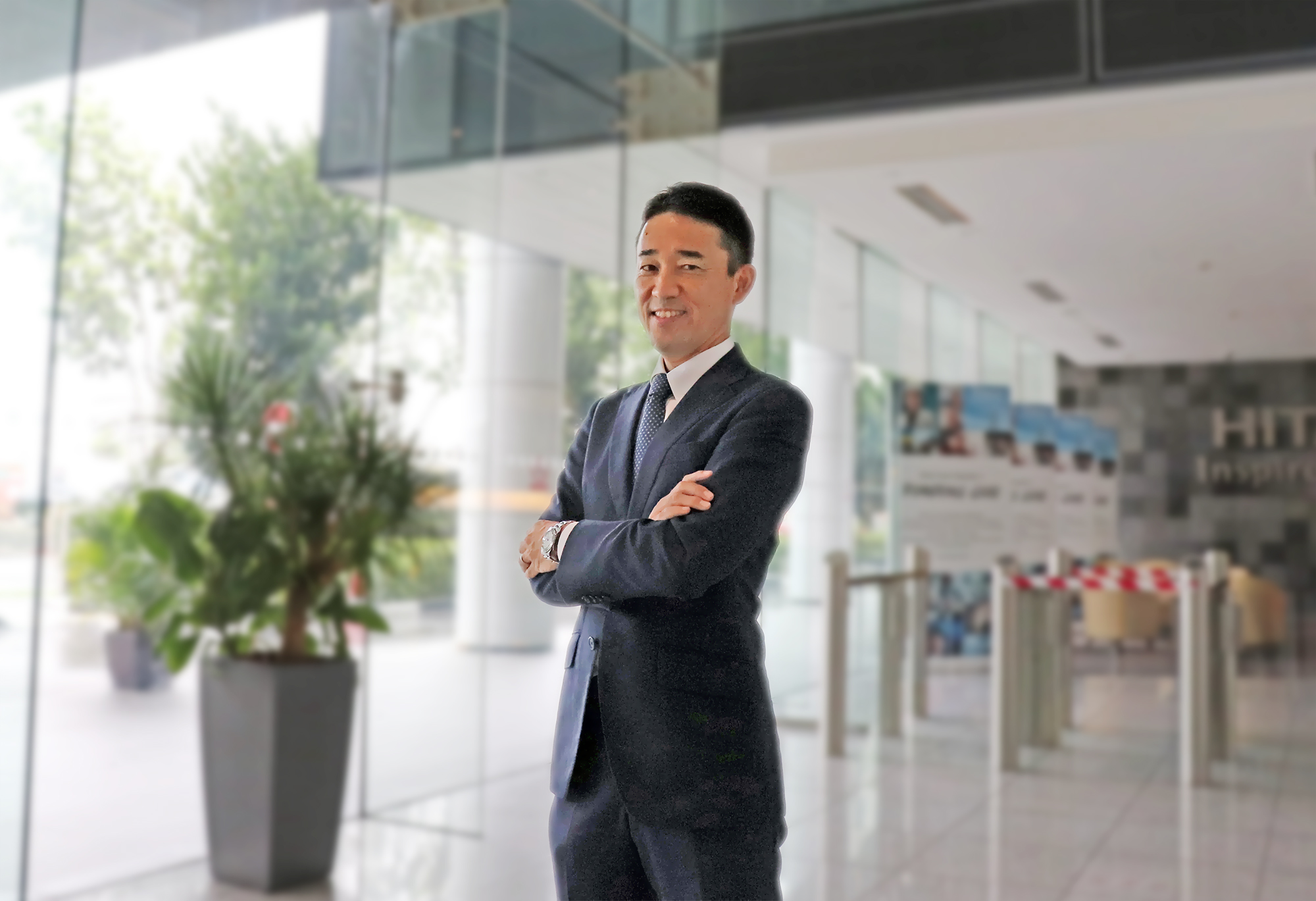Takatoshi Sasaki is the managing director of Hitachi Asia, a subsidiary of Japanese firm Hitachi Group. Headquartered in Singapore, Hitachi Asiaprovides solutions to improve infrastructure, industrial systems, telecommunications, and smart home appliances in Southeast Asia.The company has been involved in projects such as the new line of Metro Manila with New Clark City in the Philippines, the Super Low Energy Programme (SLE) in Singapore, and the construction ofsmart factories such as the Lumada Center in Thailand.
Sasaki began his career with Hitachi Group in 1993 and was appointed managing director of Hitachi Asia in April 2020.KrASIA recently talked to Sasaki about Hitachi Asia’s work in the region and the use of technology to support social innovation.
KrASIA (Kr): What are some unique issues that your company is trying toaddress in Southeast Asia, and what are the proposed solutions?
Takatoshi Sasaki (TS): With many Southeast Asian cities experiencing strong economic growth, urbanization, and technological advancements, the overarching challenge across most territories include rising energy consumption, congestion, environmental challenges, and other infrastructure challenges caused by rapid development.
Social innovation is at the heart of everything we do. This basically means being able to come up with effective solutions to solve current issues and raise the overall quality of life. Our solutions aim to help lay the foundation of modern, urbanized, and sustainable cities. In Singapore, developing energy-efficient buildings has been a perennial challenge for building owners and managers. To address this issue, Hitachi Asia was commissioned to develop the Super Low Energy Building (SLEB) Smart Hub, which utilizes cutting-edge big data analytics and artificial intelligence techniques. It allows building owners and designers to evaluate and source green technologies to transform buildings with high energy performance.
Kr: With 5G on the verge of starting its mass adoption phase, how will this impact the everyday lives of people in the region?
TS: With Southeast Asia having some of the fastest-growing smart cities, the mass adoption of 5G will enable the scalability of integrated smart networks in sectors like power and transport. In Southeast Asia, congestion has been a huge problem, but if smart transport networks can be optimized, it will bring a greater level of productivity, which will be then amplified across other sectors like logistics, aerospace, and public services.
There are also many possibilities in the power sector. The energy transmission grid, connected through an online communication network, can better distribute energy across the power system, leading to greater efficiency, and eventually, to a reduction in greenhouse gas emissions.
5G technology can impact issues like public safety in urban areas through the use of internet of things (IoT) sensors that collect data in real-time, and we can then work on big data analytics with that information, thereby improving on systems and people’s quality of life as a whole.
Kr: Smart public services have seen greater visibility amid the COVID situation and the needfor contactless services. How do you see this area developing in the region, especially in the post-COVID era?
TS: COVID-19 definitely brought a huge boom in contactless services, probably everywhere in the world. The safety, ease, and accessibility provided by secure contactless services can speed up many business processes, increasing the quantity and speed of micro-transactions, for instance.
Contactless services in the retail sector expand a consumer’s ability to purchase goods and services on the go without the need for physical currency. In Thailand for example, Hitachi is working with local startups to provide such digital services to residents in Bangkok. Residents are able to safely and comfortably go about their daily activities, like shopping for groceries, just by touching a screen at home. To reduce the reliance on physical cash, pensioners in Vietnam are also able to withdraw their payouts directly through a simple card.
COVID-19 has brought disruption across the world and accelerated widespread digital adoption. In January, we held our first-ever virtual Hitachi Social Innovation Forum for the Southeast Asia region, which was themed ‘Digital Transformation in the New Normal.’ Through various talk sessions and virtual exhibits, we were able to showcase how users can pursue digitalization strategies in the new normal for their business.
Kr: With your vast experience in IT, what have been some of the biggest changes you have seen?
TS: In my opinion, the widespread growth of the internet has had the greatest impact on shaping our society today. With the connectivity of computers around the world, the exchange of information has increased exponentially. On top of that, the evolution of networks and computer performance, and the emergence of smartphones and cloud technologies have impacted society economically, culturally, and politically in ways that are far beyond our imagination. One single person’s action and opinion can be influential very quickly, and this would not have been possible without the internet.
I believe the next major change would be the collection and usage of information, which goes beyond physical data. With the rapid increase in the use of smart technologies, sensors and methods have been developed, some even capable of detecting and analyzing human emotions and reactions. Implicit knowledge has become more explicit, and such knowledge can be used to improve the quality of life, socially and environmentally, rather than just economically.
